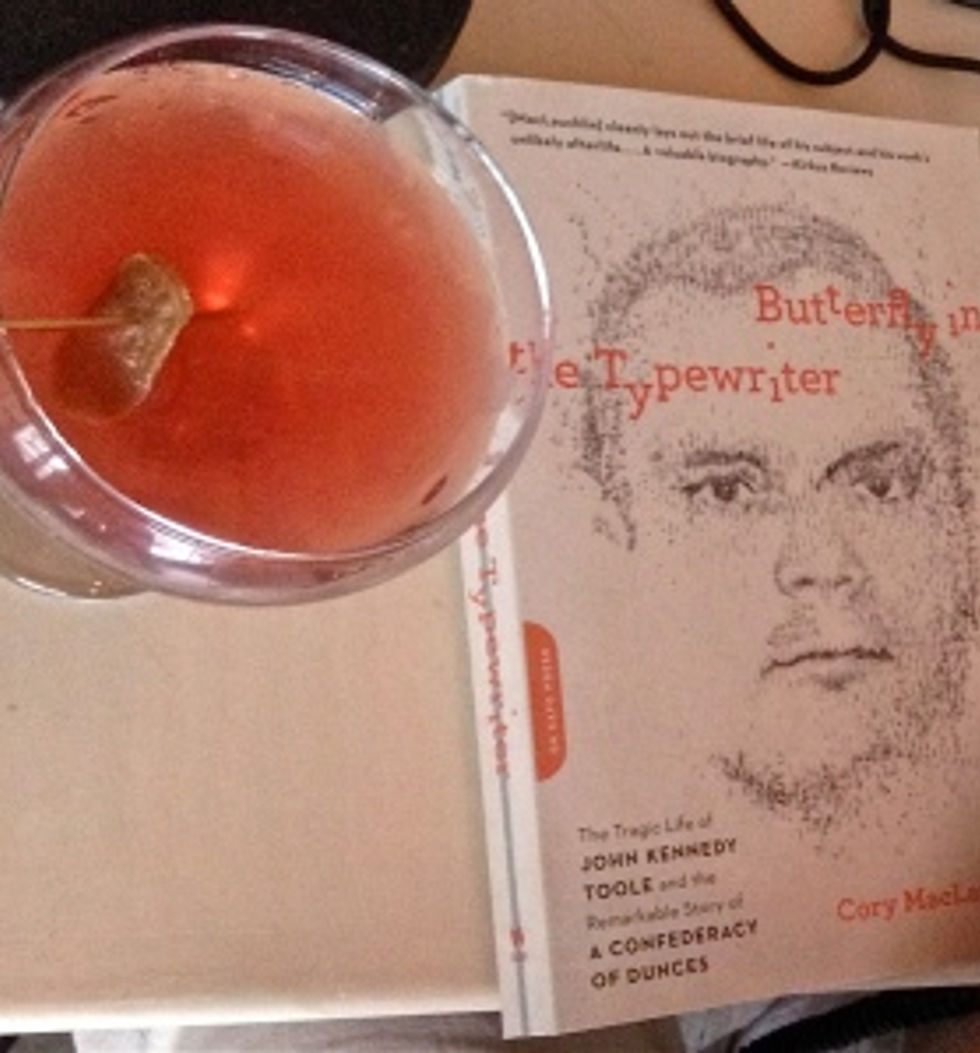The Power of a True Story
- cmaclauchlin
- Sep 19, 2014
- 3 min read

Last night a group of actors gathered in the classroom of screenwriter Henry Griffin at the University of New Orleans to read David Dubos’s script for Butterfly in the Typewriter. Sadly, I could not be there, but my conversations this morning with those that were, confirm once again: there is an uncanny energy surrounding this story.
Back in 2011 I was popping champagne in celebration of a book deal. I never imagined I would be talking about a movie deal. But last spring New Orleans filmmaker David Dubos stumbled across a copy of Butterfly randomly left on a countertop at The Louisiana Music Factory. “I thought the title was unusual,” he recalls “like a Salvador Dali painting.” He was thrilled to discover it was about John Kennedy Toole, an author whose work he loved. “I’m taking this book” he told the owner and friend. A few days later he sent me an email. He wanted to adapt it into a film.
And so began a process of sharing ideas and sources. I scoured my research materials and connected him with people that new Toole. To be honest, I was apprehensive about the changes an adaptation may bring to the story. But a few months later David presented a brilliant script, hilarious and tragic, and true to the spirit of its subject.
Marti Luke, who had been a student of Toole’s at Dominican, was so excited about the adaptation she came down from Baton Rouge to hear the reading. As she entered the room it was clear the actors, all professional, knew each other. So she took her place quietly in the back of the room to listen. But David asked her to come to the front. He wanted her to read the part of Thelma Toole, one of three leading parts. And so she donned the role of a woman she had met many years ago, a woman whose son she had never stopped loving.
Over the next two hours the room erupted in laughter and quieted to near silence as they followed Toole’s descent into madness. One of the more devastating moments comes when Toole’s student Martha learns of his suicide. She stares up at the Doomsday Clock he had drawn on the classroom board, wishing she could turn back time.
After the reading the actors talked about the colorful characters and the power of the dialogue. While most of them had heard of John Kennedy Toole, they had no idea how funny and heart-wrenching his life story was. And as for the script, “wonderful” “amazing” “genius” they said. But they still wondered about Marti Luke, especially since David selected her to read a lead role. David invited Marti to tell everyone about herself. “Well, I am Martha,” she explained—the same student of Toole’s who watched him draw that Doomsday Clock. The actors gasped. This was no mere performance for her, but rather a part of her life. They asked about her experience with Toole and his mother.
After the actors had left David spoke with Henry Griffin as they put the classroom back in order. Henry praised the script and then mentioned, “You know, Toole used to date my mother, Emilie Dietrich Griffin.” In fact, his mother visited Toole in Puerto Rico right before he started working on his novel. In his letters to her, Toole confessed his struggle to find his voice. It was a struggle that touched the lives of everyone in that room last night.
I have often said, this story has a way of weaving through people’s lives. And it amazes me how it reflects one of the key elements in Toole’s novel. Despite our differences, despite our failures and victories, we are all linked in ways that often go unseen. But at the right place and at the right time—perhaps strolling down the street or browsing through a music store—if we are paying attention, we will see the threads that connect us.
Bravo to all the readers last night. As David says, Onward!


Comments